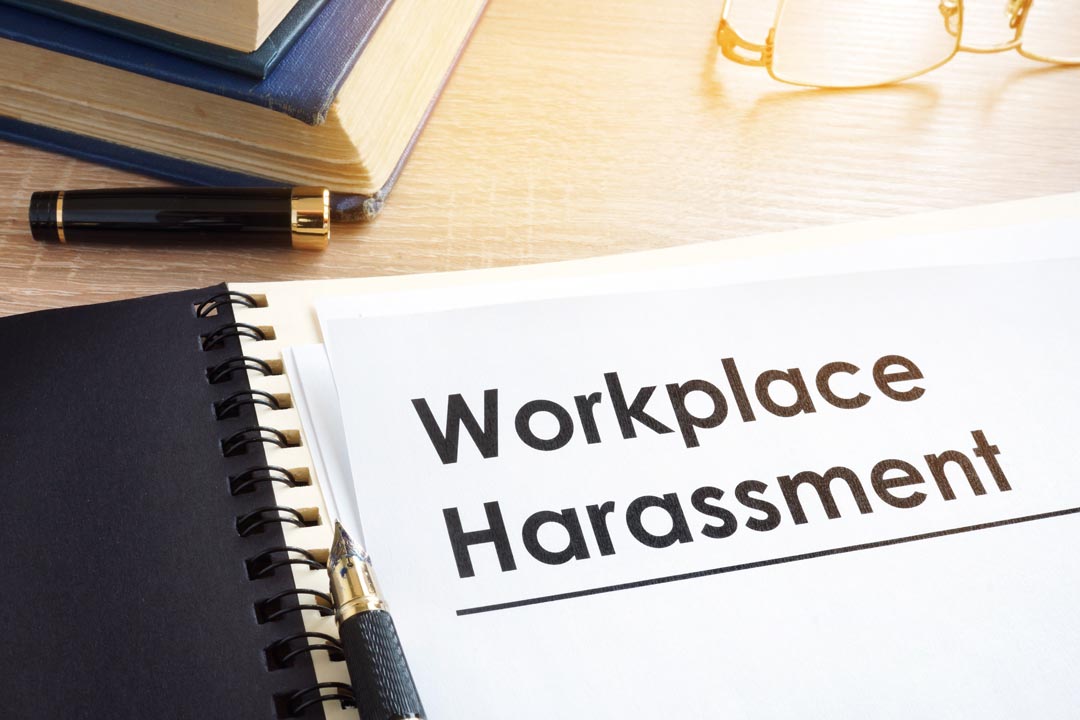As one in five report experiencing violence and harassment at work, Aaron Gardner looks at what has been done to create safer workplaces
Around the world, violence and harassment in the workplace is a major issue. Data from the Lloyd’s Register Foundation World Risk Poll indicates that more than one in five (21%) workers globally have experienced violence and harassment at work.
The next stage is to take action, and there are clear and effective steps that can be implemented by all nations
How much has changed since the release of the report in January 2023 and what has been done to prevent violence and harassment in the workplace?
At all levels
In the last 12 months, reports of violence and harassment in some of the world’s biggest and most well-known companies have highlighted injustices in the workplace on a global scale. Prior to events in the last year, other high-profile cases shone light on to the subject with repeated calls for change and action.
Last year at Lloyd’s Register Foundation, we released Safe at Work? Global experiences of violence and harassment, a report for which 125,000 people across 121 countries were surveyed by Gallup to gather insight on their perceptions and experiences.
Based on the results, Lloyd’s Register Foundation called for more countries to ratify the International Labour Organization’s Violence and Harassment Convention (ILO C190).
The results showed that, globally, 21% of all workers responding to the survey said they had suffered violence and harassment at some point in their lives. The top 10 nations with the highest rate of reports were all high-income Western countries.
Worryingly, the survey also highlighted that respondents were not disclosing experiences to those in charge of worker welfare. Globally, 52% of people who had experienced violence and harassment told someone else about their ordeal, but those who did not cited seeing it as a waste of time (55%) or unclear procedures (42%) as the reason for not alerting anyone.
The World Risk Poll highlighted the issue of violence and harassment in workplaces around the globe, yet the past year has highlighted further abuse in some of the world’s most well-known companies.
Has anything changed?
Unfortunately, there are limited clear signs of positive change since our World Risk Poll report was published. Meanwhile, numerous headlines have swamped the news, highlighting historic and current cases of violence and harassment in high-profile workplaces.
This year, hundreds of current and recent staff at several McDonald’s franchises spoke out about claims of sexual assault, harassment, racism and bullying while working at the fast-food chain. Reporting on the claims, the BBC was told that “workers, some as young as 17, are being groped and harassed almost routinely”.
After signing a legally binding agreement with the Equality and Human Rights Commission (EHRC) in February 2023 where it pledged to protect its staff from sexual harassment, McDonald’s said it had “fallen short” and “deeply apologised” after the claims surfaced.
Furthermore, 2023 saw claims of sexual misconduct, including one report of rape, alleged by women at the Confederation of British Industry (CBI). The CBI, Britain’s most influential business lobbying organisation, is currently holding an inquiry into the claims, with the help of an independent law firm.
And it is not just the UK where violence and harassment has been in the headlines. Several US states, including Iowa, have recently relaxed workplace restrictions for minors in a bid to address low staffing levels. This means that children under 16 can now work longer hours, and children aged 16 to 17 can now work in prohibited areas, including manufacturing, as long as they are part of an approved training programme.
This change has led to the publishing of a report which indicated that young workers in the US face a significant risk of workplace violence.
Meanwhile, in Australia, employers now have a legal responsibility to take steps to prevent sexual harassment at work after it emerged in a national survey that one-third of people employed in the past five years said they had experienced sexual harassment at work.
While there have been numerous headline reports of violence and harassment in the workplace, there has also been a significant positive development, thanks to the Council of the European Union, which has adopted a draft decision calling on EU member states to ratify ILO C190.
A global response
The ILO C190 Violence and Harassment Convention held in Geneva in 2019 aims to “recognise the right of everyone to a world of work free from violence and harassment”. The convention means all 187 countries can ratify it into law but, unfortunately, not all have yet chosen to do so.
Currently, 36 countries have ratified the convention into law, up from 21 countries since the report was launched. These include Greece, Spain and Italy which have recorded high levels of violence and harassment, but leaves 151 ILO member states without the convention embedded in their own laws.
Each country that ratifies C190 must adopt an approach in accordance with international law to eradicate violence and harassment in the workplace. This includes adopting a comprehensive strategy to stop aggression from third parties and ensuring investigations take place once abuse is reported and appropriate sanctions are given to confirmed perpetrators.
ILO member states are not forced to ratify C190; it is a choice that each government must make.
The future workforce
As more countries vote to ratify C190, including most recently Bolivia and the Philippines, it is critical that countries implementing the convention into law at the earliest possible opportunity.
In the Philippines, the Lloyd’s Register Foundation World Risk Poll report was cited as a basis for action by the Senate majority leader in his speech when introducing the motion to ratify C190.
However, ratification alone is not sufficient to provide protection for workers who are experiencing violence and harassment in the workplace.
It is clear from the World Risk Poll that many of the measures proposed in the ILO C190 resonate with workers experiencing violence and harassment. Findings show that many people – particularly those who are not born in the country they work in – are not clear on the correct procedures if they wish to report an incident.
C190 aims to ensure there are fair, effective and accessible reporting systems that everyone can access. Implementing these systems effectively requires sustained, collaborative work between business and government, far beyond the point of C190 ratification.
Headlines of violence and harassment in workplaces around the world have become all too common, but in one way this is positive. More and more people are recognising workplace harassment for what it is, and feeling empowered to speak up. But the next stage is to take action, and there are clear and effective steps that can be implemented by all nations – the choice is now up to individual governments.
Aaron Gardner is Data Visualisation and Insight Scientist at Lloyd’s Register Foundation




